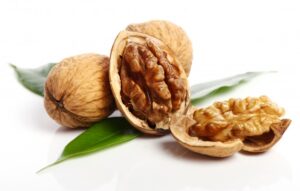Healthy Foods to Improve your Baby’s Weight
 25139
25139
super easy
“You’re always going to wonder if you’re doing things wrong, but that’s what it means to be a mom, to care so much about someone else that you just want to be as perfect as possible”- Naya Rivera. Every mother wants the best of everything for her child, be it clothes, toys, food, and nutrition, for that matter. If you are a new mom, you might be in a dilemma about bringing up your child in the most healthy way possible. In your baby’s upbringing, food and nutrition play a crucial part. Infant nutrition acts as a base in your baby’s life. So, make sure you introduce nutritious and healthy food in your baby’s diet right from the beginning!
Should you be worried if your baby is not ‘Chubby’?
As the baby grows, his or her health status is determined based on the weight. If your baby experiences a slight drop in his/her weight in the first five to seven days, do not worry. This happens very often as per many pediatricians. You may have your own imagination and expectation regarding your baby’s weight (of course, you would love if everyone calls your baby chubby and cute) No harm in that. But is it the right approach to determine your baby’s health? The answer is a big NO!
As per many pediatricians, you need not worry about your child’s weight until and unless your baby is active, healthy, and free from any infections and diseases! It is the parents’ genetic constitution and metabolism rate, which positively influences your baby’s weight. So, you need not worry. However, it’s always better to consult the pediatrician to clarify your queries.
What if your Baby is Underweight?
Your baby can be underweight for many reasons. It can be digestive issues, malabsorption, food intolerance, or maybe heart diseases. In such cases, it’s always better to consult the doctor and get to know the reason. If your doctor ruled out all these reasons, then the only factor which remains is nutrition! Your baby needs good nutritious food, which is high -calorie food with the right amount of fat! Yes, healthy fat. You may perceive that fat is unhealthy, and low fat and high fiber diet goes well with kids of all ages, including your newborn. But this is not true. Healthy fat is required for the development of your baby’s brain and nervous system and also for the absorption of important vitamins such as A, D, E, and K. When you design high-calorie food for your underweight baby, make sure it contains healthy and whole foods and not processed foods with empty calories. There is a considerable risk involved if you feed your baby with high sugar-based processed foods. These may lead to weight gain at the initial stage, but it will be difficult for you to include the healthy food items later on as the baby would not have developed an appetite for it! This may result in many lifestyle diseases. Therefore, you should always choose a high-calorie healthy diet with an adequate amount of protein as well, so that the extra calories get stored in the baby’s body as muscle mass and not as fat! What are the healthy foods which can rescue your baby from being underweight? Read on! So, suppose your baby is underweight (after consulting with the pediatrician and not based on your friends or relative’s opinion). In that case, you need not worry; there are many amazing natural foods available for your rescue! While trying out the following weight gain, solid foods, make sure to check whether your baby is developing any food intolerance or allergy. Introduce these foods only after your baby has begun to eat solid foods (after 6 months). Let’s check out these tasty and healthy solutions.
Breast Milk

Yes, breastmilk is the topmost infant nutrition provider and also helps the baby to gain a healthy weight. It contains the immunity-boosting elements and all the nutrients that are required for the normal growth and development of your baby except for VitaminD. As per WHO (World Health Organization), your baby must be breastfed for the first six months; it can be continued until 12 months or beyond if both you and your baby are willing. When you are breastfeeding, make sure you empty one breast completely and then move to another as the initial milk is thinner foremilk and fat-rich hindmilk comes after that. If you are facing difficulties in breastfeeding due to certain reasons, you can take advice from your doctor and can feed your baby with infant formulas. The commercially available formulas provide all the nutrients that are present in the breastmilk except for the immunity-boosting elements or antibodies. These formulas can’t match your breastmilk; do you know why? Because breast milk is a living substance produced in your body for feeding your baby, this can’t be duplicated. So, it is always better to prefer breastfeeding over infant formulas if your health condition is not a concern.
Fruits

Fruits are a fantastic source of fiber, natural sugar, and nutrients, such as vitamins and immunity building minerals. Let’s know what kind of fruits you can introduce in your baby’s meal. Bananas are fruits that are ‘user friendly.’ They are naturally sweet, so no need for adding sweetener. You need not cook it, and you can make it into puree without any equipment! These energy-dense fruits are of high calorie compared to that of watermelon, apples, strawberries, etc. and help the baby gain weight naturally. This potassium and fiber-rich fruits can be made into a puree, or you can add these into porridge and pancakes and feed your baby. There is a variety of bananas called as Kerala bananas or green plantains which are good sources of potassium, calcium, and fiber. You can also include these in your baby’s diet. Pears are nutritious fruits with a good amount of iron, vitamin C and B6 in them. These high-calorie fruits help in weight gain as dietary fiber present in them helps indigestion. You can feed pears as puree, finger food, or can add into pancakes. Avocado fruits are not native to India, but these are commonly found in the market nowadays. These are excellent sources of healthy fat and helps in your baby’s weight gain. Their creamy consistency and mild flavor make it easier to feed or blend into other foods at the earlier stage of your baby’s solid food eating. They are a rich source of nutrients such as Vitamin E, C, K, B6, folate, copper, fat and dietary fiber. These can be introduced to your baby as puree after six months, and later on, after one year of age, you can feed these fruits in the form of smoothie and milkshakes.
Peas

You can introduce nutritious vegetables such as peas after your baby crosses 6 months along with the fruits. These are rich sources of thiamine, vitamin C, A, B6, dietary fiber, niacin, magnesium, and phosphorous. You can feed your baby with peas in the form of puree, khichdi, or vegetable soup.
Ragi
 Ragi is also known as finger millet. It is a rich source of calcium, protein, iron, vitamin B1, B2, B6, dietary fibers, and easily digestible. This nutritious traditional baby food is quite famous in South India. You can feed ragi to your baby in the form of dosa, puddings, porridge, cake, idli, or malt.
Ragi is also known as finger millet. It is a rich source of calcium, protein, iron, vitamin B1, B2, B6, dietary fibers, and easily digestible. This nutritious traditional baby food is quite famous in South India. You can feed ragi to your baby in the form of dosa, puddings, porridge, cake, idli, or malt.
Potatoes and Sweet Potatoes

Potatoes are an amazing source of carbohydrates, vitamins, minerals, dietary fiber, natural phenols, carotenoids, and amino acids and help maintain your baby’s healthy weight gain. These least allergic foods have easily mashable texture, and their soft consistency makes them one of the best baby solid foods. It is suggested to feed the potatoes as puree, khichdi, or soups in small quantities at the beginning as these may cause stomach upset due to gas if you feed the larger portion. Sweet potatoes are nutritious, easy to digest, and considered one of the best first foods for your baby. These are low in saturated fat and consist of nutrients such as Vitamin A, C, B6, copper, phosphorus, potassium, and manganese, which helps your baby to gain weight. These can be boiled, mashed easily, and made into puree, pancakes, khichdi, and soups and can be fed to your baby after 6 months of age.
Pulses

You can call pulses a power pack of nutrients containing calcium, iron, potassium, fiber, magnesium, proteins, and essential fatty acids. You can prepare nutritious food using dal, such as soup or daal ka paani, which is the best weight gain drink for your baby! Moong dal and tuvar dal are a few of the nutritious pulses that can be made into khichdi or fed with rice or vegetables to make a fiber-rich meal for your baby. Urad dal can be used to prepare idli and feed your baby these nutritious idlis with daal ka paani, ghee, or mild rasam.
Dairy
 Milk and milk products are amazing sources of protein and fat, which help in your baby’s growth and development. Let’s check out the beneficial dairy products for your baby! What if I say our desi ghee is good for your baby to gain weight healthily? Yes, ghee has 32% of monounsaturated fatty acids or healthy fats, which plays a major role in your baby’s brain development, immune system, and has anti-inflammatory properties. Traditional medicine recommends consuming a spoon of ghee for optimum health. You can add a few drops of ghee in baby foods such as khichdi or daal soup after your little one turns 7 or 8 months old. But, make sure you use home-made ghee (to avoid the side effects of adulteration, preservatives, etc.) in moderation as an excess amount of ghee may result in your baby’s stomach upset. Yogurt is a healthy fat source that improves digestion and immunity and helps in the gastric issues besides promoting healthy weight gain. You can include plain yogurt or flavored yogurt smoothies or shakes with nutritious fruits after your baby turns one. Same as yogurt, butter, and cheese, add the healthy fat content to your baby’s diet. You can include these to enhance the taste of the food. All types of cheese can help your baby gain weight and provide nutrients such as calcium, selenium, and phosphorous. Based on your pediatrician’s opinion, you can start including these dairy items after 12 months to your baby. Indian cottage cheese or our paneer is a fantastic alternative to animal protein. You can include in your baby’s diet after 8 months as puree, finger food, or mixed with pieces of fruits and vegetables. It is always recommended to prepare your paneer at home. Cow’s milk is highly nutritious, and it is recommended to include in your baby’s meals after he or she turns one. It is a good source of calcium, making your baby’s bones stronger and keeping the overall health in check. Two glasses of milk every day helps your baby to reach his or her weight goals. You can make milk interesting to drink by adding health mixes of various flavors, dry fruits, etc. ‘Too much is too bad,’ isn’t it? So, make sure you don’t go for extreme situations, i.e., overeating or not feeding dairy items to your baby. These can cause trouble for your baby. In case your baby has lactose intolerance or gastric issues, it is always better to consult the pediatrician.
Milk and milk products are amazing sources of protein and fat, which help in your baby’s growth and development. Let’s check out the beneficial dairy products for your baby! What if I say our desi ghee is good for your baby to gain weight healthily? Yes, ghee has 32% of monounsaturated fatty acids or healthy fats, which plays a major role in your baby’s brain development, immune system, and has anti-inflammatory properties. Traditional medicine recommends consuming a spoon of ghee for optimum health. You can add a few drops of ghee in baby foods such as khichdi or daal soup after your little one turns 7 or 8 months old. But, make sure you use home-made ghee (to avoid the side effects of adulteration, preservatives, etc.) in moderation as an excess amount of ghee may result in your baby’s stomach upset. Yogurt is a healthy fat source that improves digestion and immunity and helps in the gastric issues besides promoting healthy weight gain. You can include plain yogurt or flavored yogurt smoothies or shakes with nutritious fruits after your baby turns one. Same as yogurt, butter, and cheese, add the healthy fat content to your baby’s diet. You can include these to enhance the taste of the food. All types of cheese can help your baby gain weight and provide nutrients such as calcium, selenium, and phosphorous. Based on your pediatrician’s opinion, you can start including these dairy items after 12 months to your baby. Indian cottage cheese or our paneer is a fantastic alternative to animal protein. You can include in your baby’s diet after 8 months as puree, finger food, or mixed with pieces of fruits and vegetables. It is always recommended to prepare your paneer at home. Cow’s milk is highly nutritious, and it is recommended to include in your baby’s meals after he or she turns one. It is a good source of calcium, making your baby’s bones stronger and keeping the overall health in check. Two glasses of milk every day helps your baby to reach his or her weight goals. You can make milk interesting to drink by adding health mixes of various flavors, dry fruits, etc. ‘Too much is too bad,’ isn’t it? So, make sure you don’t go for extreme situations, i.e., overeating or not feeding dairy items to your baby. These can cause trouble for your baby. In case your baby has lactose intolerance or gastric issues, it is always better to consult the pediatrician.
Chicken

If you want your baby to build muscle mass and gain weight, chicken is the right, healthy option for you. Being a rich source of protein, it aids in the growth and development of your little one. The nutrients such as vitamin B6, B12, magnesium, phosphorous present in chicken makes your baby’s teeth and bones stronger and keep kidneys and nervous system healthy. It is better if you start with boneless pieces like chicken breast. Chicken puree, chicken stew, soup, or chicken rice; these are the chicken items you can introduce in your baby’s meals. You can prepare your baby’s dishes using chicken stock, which enhances the taste and nourishment as well.
Nuts and Seeds
 These small packs of nutrients include pistachios, almonds, fig, walnuts, raisins, cashews, apricots, sesame seeds, pumpkin seeds, flax seeds, etc. You can powder them and add them into milk or sprinkle on top of cereals. If your baby is lactose intolerant, then almond milk is there for your help. You can prepare a weight gaining drink for your baby by just adding dates syrup to milk, which makes it an iron-rich food option for your baby in no time! Do not miss on this point, do check your baby’s reaction to these dry fruits, nuts, and seeds for allergy or food intolerance.
These small packs of nutrients include pistachios, almonds, fig, walnuts, raisins, cashews, apricots, sesame seeds, pumpkin seeds, flax seeds, etc. You can powder them and add them into milk or sprinkle on top of cereals. If your baby is lactose intolerant, then almond milk is there for your help. You can prepare a weight gaining drink for your baby by just adding dates syrup to milk, which makes it an iron-rich food option for your baby in no time! Do not miss on this point, do check your baby’s reaction to these dry fruits, nuts, and seeds for allergy or food intolerance.
Eggs

If you want your baby to gain proportionate weight, maintaining a healthy weight bracket, then feed him or her with one boiled egg every day for breakfast, and you are done! Eggs are considered the most sought-after powerhouse of proteins, healthy fats, vitamins, and minerals, which help in the brain and nervous system’s vital development. You can prepare no egg-based dishes such as omelets, scrambled eggs, boiled eggs, etc. Eggs that you procure must be of good quality and disease-free. It is always better to check how your little one reacts to eating egg dishes. Egg white has higher chances of causing allergies; therefore, it is recommended to start feeding your baby with egg yolk and then gradually introduce the egg white.
Whole Grains

What is the difference between whole and refined grains? The answer is the nutritious bran layer. The whole grains contain dietary fibers and nutrients in the bran layer, adds up the bulk to the diet, helps in digestion and smoother bowel movements. Wheat is the most commonly used grain in India. Whole wheat is also available in the market as broken wheat or Dalia. If there is no known history of gluten intolerance or celiac disease in your family, then there is no harm in feeding your baby with wheat food items. You can prepare various whole wheat items such as wheat halwa, wheat porridge, wheat soya porridge, broken wheat porridge, wheat Dalia porridge, etc. You can also include entire wheat mixes, pancakes in your baby food diet plan.
Oats

You might be wondering how oats can help in weight gain as it is an ideal food for weight watchers? To your surprise, oats can indirectly help in improving the weight of your baby! Oats are a rich source of manganese, magnesium, dietary fiber, thiamine, phosphorous, and low in saturated fat. These cereals with a legume like protein easily add bulk to the dishes, and these can be introduced in your baby’s meal plan after six months. Oats are versatile cereals and can be added into sweet and savory dishes such as porridge, khichdi, kheer, pancakes, etc. So, to all the new mommies out there, here is the list of unique healthy baby food to help you in improving your baby’s weight. Always discuss with your pediatrician before introducing these foods in your baby’s diet to better understand! If you include the goodness of these healthy foods, you can rest back and feel assured as these provide all the vital nutrients required for your little bundle of joy! So, buckle up and go for the healthy way of upbringing!





Leave a Reply